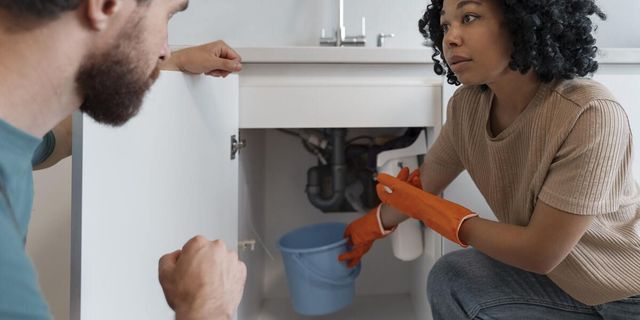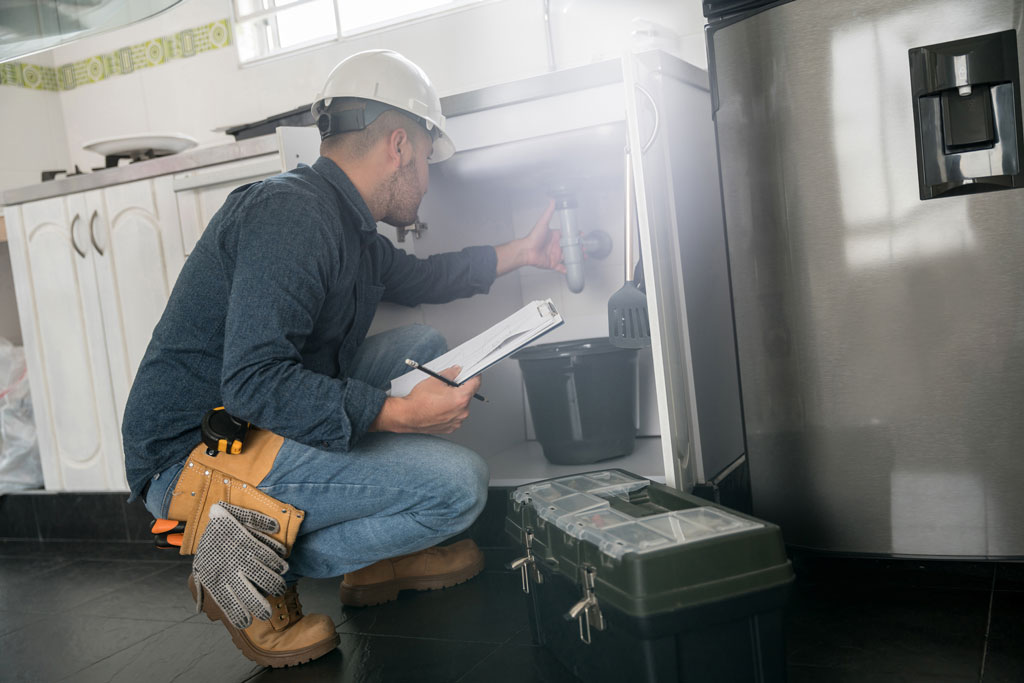Urgent Repair Advice: How to Manage Issues Until Assistance Arrives
Urgent Repair Advice: How to Manage Issues Until Assistance Arrives
Blog Article
What're your concepts about What to Do While Waiting for an Emergency Plumber?

Pipes emergencies can strike at any time, causing stress and potential damage to your home. Whether it's a ruptured pipeline, a clogged up drainpipe, or a leaking faucet, understanding how to manage the situation until a specialist plumbing professional gets here can conserve you from additional problems. This article provides crucial emergency situation pipes suggestions to help you mitigate damages and reclaim control throughout a plumbing crisis.
Switch off the Water System
The primary step in any type of plumbing emergency situation is to turn off the supply of water. For localized concerns, such as a dripping faucet or toilet, switch off the valve near the fixture. When it comes to a significant leak or ruptured pipeline, locate your home's main water shut-off shutoff and turn it off immediately. Understanding the location of these shutoffs in advance can save important time throughout an emergency.
Shut Off Your Hot Water Heater
In specific emergencies, such as a ruptured pipe, it's important to shut off your hot water heater. This stops overheating or damages to the system when water quits streaming. Turn off the power supply to the hot water heater (electric or gas) and allow it cool off to stay clear of prospective hazards.
Momentarily Stop a Ruptured Pipe
A ruptured pipe can bring about considerable water damage in mins. To mitigate the problem:
Call an expert plumber instantly to attend to the trouble completely.
Have an Emergency Pipes Package
Prepare a basic plumbing emergency situation kit to manage minor concerns effectively. Your set must consist of:
Having these devices available can make a substantial difference in your capability to handle emergency situations.
Unclog Drains Safely.
A clogged up drainpipe can be a discouraging and unpleasant issue. Here's exactly how to tackle it:.
If these methods don't function, stay clear of using extreme pressure, as it might worsen the blockage.
Handle Overflowing Toilets.
An overruning commode can cause immediate mayhem. Below's what you need to do:.
Address Small Leaks with Temporary Solutions.
Tiny leakages can swiftly end up being significant problems if left unchecked. Make use of these short-lived repairs up until professional help gets here:.
While these fixes aren't irreversible, they can assist reduce water loss and damage.
Take Care Of Frozen Water Lines Thoroughly.
In colder environments, frozen pipelines are a common emergency situation. If you presume a frozen pipeline:.
Know When to Call an Expert.
While quick fixes can assist temporarily, specific plumbing concerns need prompt professional focus. Call a plumbing technician if:.
Promptly speaking to an expert ensures the problem is dealt with correctly and stops further difficulties.
Protect against Additional Damages.
Taking quick activity to reduce damages can conserve you money and time over time. Below's exactly how:.
Verdict.
Pipes emergencies can be frustrating, yet with the best understanding and tools, you can handle the scenario effectively until aid shows up. By switching off the water supply, attending to tiny leaks, and utilizing short-lived fixes, you can reduce damages and maintain your home safe. Remember, these ideas are short-lived solutions; always seek advice from a qualified plumbing to deal with the source of the trouble. Prep work and quick thinking are your finest allies in any kind of pipes emergency situation.
8 Helpful Tips for Managing Plumbing Emergencies at Home
If your plumbing system hasn’t failed once, wait for it because almost everyone has a story to tell. Sometimes, it could be simple emergencies such as a leaking pipe, a blocked cistern, or even a big burst pipe. In situations like this, you need to have some handy tips to save you some money and from possible damages.
Take care of minor issues early.
Sometimes, you could have avoided an emergency by taking proactive measures while it was still early. Some major plumbing emergencies can be a result of an ignored minor issue. We recommend that you have items like plumbing tapes and other related items. A plumbing tape can allow you to manage minor leaks before the plumber arrives.
Cut off the water supply.
This tip is essential in almost any type of leakage problem. For problems like minor leakages in the toilet or kitchen, turn off the supply that takes water to the affected pipes. If the leakage is a major pipe, you must shut off the supply valve to the entire building. This will help you avoid flooding your home and neighbors if you share a flat.
Know your plumbing system
Folks typically move into a new apartment without understanding the water supply around the building. This can prove disastrous if a water emergency arises and the plumber is far away. The previous tip will prove useless if you don’t practice this one. More importantly, know where your water shut-off valve is located – you’ll need that knowledge to prevent potential home floods.
Have some common handy tools
There are lots of plumbing emergencies that you can handle without hiring a plumber. That’s why you must keep some tools available always. Some tools that you can use to fix simple plumbing emergencies easily include plumbing tapes, screwdrivers, thread seal tapes, plungers, pliers, tape measures, and rubber gloves.
Insulate your pipes from cold
You’ll save yourself from many plumbing expenses if you protect your water pipes from the cold. This is because of the harmful effects that cold weather can have on your pipes. During winter, your pipes can burst from being overly expected to freezing temperatures. So, make sure insulators are there to keep the pipes working correctly.
Avoid practices that will clog your toilet.
Many people indulge in practices that can damage the plumbing system of the entire building. One of these is when they use their toilet to dispose-off garbage. They flush all kinds of things, such as paper towels, bandages, hairs, female sanitary products, etc., down the toilet. This will block your toilet in the long run, incurring unnecessary expenditures. Dump such waste in the trash instead.
Check your dials regularly.
Sometimes, there could be leakages in your home without noticing them in time. So, constantly monitor your water meter dial. If the dial is reading when there is nobody using water, this is an indicator that there is leaking. Check for leaks immediately. Call a plumber as soon as possible if you can’t find any.
https://www.constructionplacements.com/8-helpful-tips-for-managing-plumbing-emergencies-at-home/

I discovered that piece on Expert Tips for Emergency Plumbing Repairs when doing a lookup on the web. If you enjoyed our page kindly don't forget to share it. Thanks for your time spent reading it.
Call Today Report this page